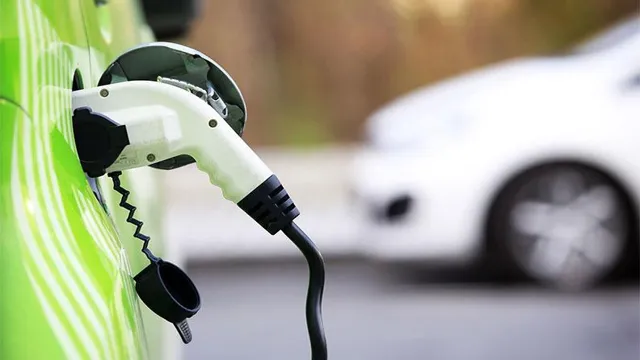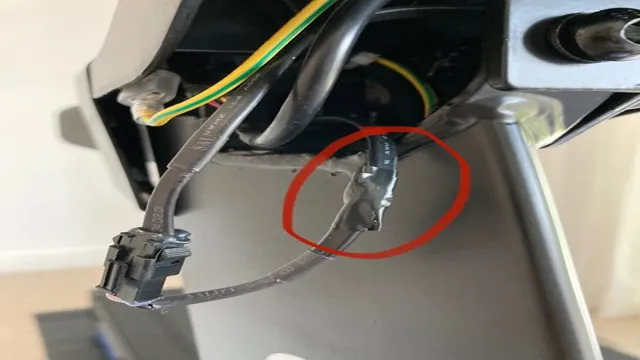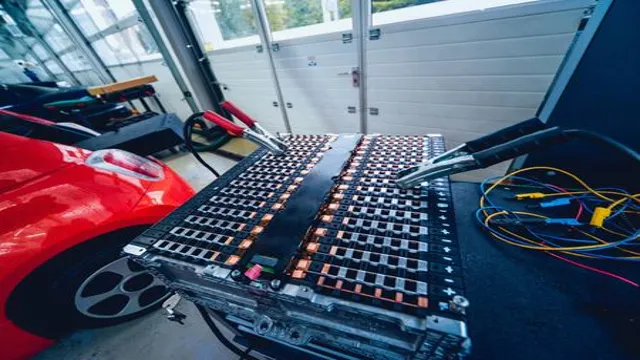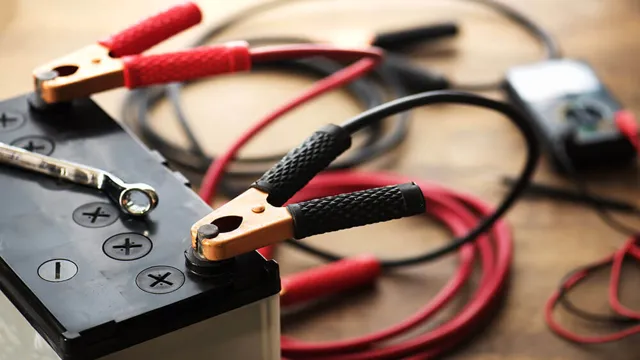Revolutionizing Sustainability: The Future of Electric Car Battery Recycling
Electric cars are quickly becoming a popular choice for drivers seeking a more sustainable mode of transportation. However, with increased use comes the need for responsible disposal of the batteries that power these vehicles. Recycling electric car batteries is crucial to reducing the environmental impact of electric vehicles, but many people may not know how the process works or where to take their old batteries.
In this comprehensive guide, we will explore everything you need to know about recycling electric car batteries, from the benefits of recycling to the different methods of disposal and recycling. Let’s dive in and learn how we can contribute to a cleaner future by properly recycling old electric car batteries.
The Importance of Electric Car Battery Recycling
Electric cars are becoming increasingly popular as people strive to reduce their carbon footprint. However, many people wonder, can you recycle electric car batteries? The answer is yes! In fact, it is essential that we recycle these batteries due to the incredible amount of toxic waste they contain. Electric car batteries typically contain chemicals like lithium, cobalt, and nickel, which can be harmful to both the environment and human health if they are not disposed of correctly.
Furthermore, recycling these batteries helps to conserve natural resources and reduce the need for new mining. By recycling electric car batteries, we are not only being environmentally responsible but creating a more sustainable future. So next time you’re considering an electric vehicle, remember that recycling its battery is just as important as enjoying the benefits of being eco-friendly.
Reducing E-waste and Environmental Impact
As electric cars become more popular, there is a growing concern about the environmental impact of their batteries. Electric car batteries contain valuable materials like cobalt, nickel, and lithium that can be recycled, minimizing the amount of electronic waste (e-waste) that pollutes landfills. The importance of electric car battery recycling cannot be overstated, as toxic chemicals like lead and cadmium can seep into the soil and groundwater, affecting human health and wildlife.
By recycling these batteries, we can also reduce our dependence on valuable and scarce resources like rare earth metals that are used in electric car batteries. So, the next time you think about buying a new electric car, consider not only their eco-friendliness but also the importance of recycling their batteries to reduce e-waste and protect the environment.
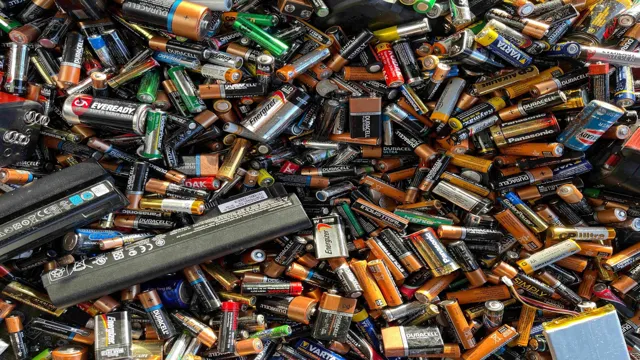
Preserving Precious Metals and Reducing Costs
Electric car battery recycling is crucial in preserving precious metals and reducing costs. With the rise of electric vehicles, the demand for batteries has significantly increased, leading to a higher consumption of raw materials such as lithium, cobalt, and nickel. Recycling these batteries can ensure the recovery of these valuable materials, reducing the need for mining, which is both expensive and environmentally damaging.
By reusing these materials, the costs of producing new batteries can also be significantly reduced, making the electric vehicle market more affordable and accessible. It is important to understand that the benefits of battery recycling extend beyond just the economic factor. By reducing the amount of mining required, we can prevent further damage to our environment, ensuring a sustainable future for generations to come.
Next-generation technology is constantly improving, making the recycling process even more efficient and productive. It is essential to prioritize electric car battery recycling to maximize the benefits and minimize the risks associated with this technology.
How Electric Car Batteries Are Recycled
Yes, electric car batteries can be recycled, and it’s essential to do so as they contain highly valuable materials that can be reused. The recycling process involves several steps beginning with the removal of all the fluids and hazardous materials. After that, the battery is broken down into smaller components, and the individual materials like copper and steel are separated out.
The lithium-ion cells are then further broken down and shredded. This process separates the cathode materials, cobalt, nickel, and manganese. These reuseable materials can be repurposed in new batteries or other products.
Additionally, the lithium can be reused as a conductive additive or as an alloy to strengthen steel. Recycling electric car batteries is a critical process that helps reduce waste and greenhouse gas emissions while conserving valuable resources.
Collection and Transportation to Recycling Centers
When electric car batteries reach the end of their life or stop functioning properly, they are recycled to recover the valuable materials inside, such as lithium, cobalt, and nickel. First, the batteries are collected by specialized companies or municipal recycling programs and transported to recycling centers. There, the batteries are dismantled, and the components are sorted and sent to different processing facilities.
This process involves breaking down the battery pack, extracting the valuable metals, and reselling them to battery manufacturers. The recycling process is essential to reduce the environmental impact of electric car batteries and promote a circular economy where end-of-life products are transformed into new products, reducing the dependence on raw materials. By recycling electric car batteries, we can reduce waste, conserve resources, and minimize pollution, ultimately leading to a cleaner, greener, and more sustainable future.
Breaking Down the Battery Components
When it comes to electric cars, the battery is a crucial component that powers the vehicle. But what happens to these batteries once they reach the end of their lifespan? The good news is that electric car batteries are recyclable. The process of recycling electric car batteries involves breaking down the battery components and extracting valuable materials such as lithium, cobalt, and nickel.
These materials can then be repurposed for other products. Recycling these batteries is not only good for the environment but also helps reduce the demand for new materials. Plus, as electric cars become more popular, the need for battery recycling will only increase, creating new job opportunities and helping economies thrive.
Overall, recycling electric car batteries is a win-win for both the environment and the economy.
Separating and Purifying Metals
When it comes to recycling electric car batteries, separating and purifying metals from the components is a critical process. The mechanics of it involve first breaking down the battery to its constituent parts, then crushing them and sorting the mix into each metal type. The different types of metals are then melted down, purified, and separated.
Lead and plastics are separated from copper and aluminum, for example, using a combination of different metals with specific properties. Once separated, the process moves on to the purification phase, where extracts of typically less than 1% imperfections are achieved. While this might sound like an incredibly simple process, highly automated shredding plants, specialized smelters, and advanced recycling technology are needed to extract the base components successfully.
The end result of this process is usually pure lead, copper, and aluminum, which finds second life in a new battery.
The Future of Electric Car Battery Recycling
Yes, you can recycle electric car batteries! In fact, as electric vehicles become more widespread, the need for efficient battery recycling is more important than ever. Currently, the majority of electric car batteries end up in landfill sites, where they can potentially leak harmful chemicals and materials. However, there are already companies working on developing technologies to safely and effectively recycle these batteries.
One approach is to break down the batteries into their component parts – such as nickel, cobalt, and lithium – which can then be used to create new batteries or other products. Another option is to simply repurpose the batteries for other applications, such as energy storage systems for renewable energy sources like solar panels. Ultimately, the future of electric car battery recycling is bright, as governments and businesses continue to invest in research and development in this area to ensure a sustainable future for electric vehicles.
Advancements in Battery Technology
As electric cars become more prevalent on the roads, the need for battery recycling has become increasingly important. The advancements in battery technology have brought about many changes, making it easier to recycle batteries and reduce waste. One such advancement is the use of more sustainable materials in the manufacturing of batteries.
New materials have been developed that are more eco-friendly and can be recycled with ease. Additionally, new methodologies have been developed to extract valuable materials from batteries that have reached their end-of-life, making recycling a more cost-effective solution. As the demand for electric cars rises in the future, so will the need for battery recycling.
It is important that we stay up-to-date with advancements in recycling technology to make sure we do our part in protecting the environment.
Increased Recycling Capacity and Efficiency
As the popularity of electric cars continues to rise, the need for increased recycling capacity and efficiency for their batteries grows in tandem. Many industry experts believe that recycling will become an increasingly important aspect of the electric car market, with some predicting that recycling will account for up to 70% of the total market. Currently, there are several key challenges facing the electric car battery recycling industry, including the high complexity of these batteries and the difficulty of safely extracting materials like lithium and cobalt.
However, many companies are actively working to overcome these challenges and improve the sustainability of the electric car market. With the advent of newer, more efficient battery technologies, the future of electric car battery recycling looks bright, with the prospect of efficient and sustainable recycling making a significant contribution towards the quest for a cleaner and greener world.
Conclusion: Be a Part of the Solution
In conclusion, electric car batteries may not be recyclable in the traditional sense, but they do have value in finding new applications. As technology advances and demand for electric vehicles grows, we can expect the recycling industry to adapt and find more efficient ways to repurpose these batteries. So the next time someone asks, ‘Can you recycle electric car batteries?’ you can confidently reply, ‘Not yet, but we’re working on it!'”.
FAQs
How long do electric car batteries typically last?
The lifespan of an electric car battery can vary depending on usage, but most modern batteries can last between 8-15 years before they need to be replaced. Many factors such as weather, driving habits, and charging patterns can also affect battery life.
Can electric car batteries be recycled?
Yes, electric car batteries can be recycled. The materials inside the battery, such as lithium, can be extracted and used to make new batteries. Recycling helps reduce waste and environmental impact of battery production.
Is it safe to recycle electric car batteries?
Yes, recycling electric car batteries is generally safe as long as proper procedures are followed. However, it is important to ensure that the batteries are handled by trained professionals who know how to safely extract and handle the materials inside the battery.
How much does it cost to recycle an electric car battery?
The cost of recycling an electric car battery can vary depending on factors such as the type of battery and the recycling facility used. However, many manufacturers offer programs to recycle used batteries at low or no cost to the owner.
